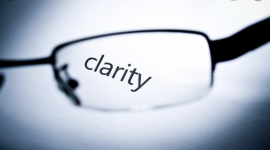15 Jun
2019
Literally Getting it Right
We’ve all read it and cringed at some point:
I literally died when I saw him.
I have literally nothing to wear.
It rained literally every day for a month.
Okay, so maybe – just maybe – if you live in a monsoon climate, the last one might be true; however, more likely it’s simply an exaggeration.
The first two? Clearly you didn’t actually die. And the second one could only be correct if you’d just evacuated your home in the middle of the night as it was destroyed by a fire and you’re naked in the street while all of your clothes have gone up in smoke!
Smarten up your writing – formal or informal – by avoiding this misuse. Literally means that something is true; for example, a literal translation of a document would be a translation that was accurate word for word.
If something isn’t completely true – don’t use literally. Bear in mind that the opposite of literally would be figuratively. If you want to use figurative language for effect – and we do this with metaphors all the time – then you could say: I died when I saw him.
It would be untrue, obviously, but you’d be using it metaphorically, rather like saying:
When he died, time stopped.
Obviously, time didn’t really stop; it just seemed that way to the writer. That’s the point of using figurative language to convey strong feelings, moods, etc. However, add in the word literally and it becomes nonsensical; you’re saying time truly stopped, which is impossible.
So how can we get it right with literally?
Use it when your sentence is completely accurate:
I’ve spent literally every evening for the past week on this project.

(Assuming that’s accurate and not an exaggeration.)
There are literally thousands of varieties of trees in the world.
Misusing literally has become so common that it’s as if people have forgotten its true – literal – meaning. Don’t fall into that trap.




